Plant-based skincare formulations are personal care products made with natural plant ingredients. Plant extracts, oils, butter, and waxes are examples of these ingredients. Plant-based skincare formulations are vegan, meaning they do not contain animal-derived ingredients.
Plant-based ingredients are also high in antioxidants, vitamins, and minerals, all of which can benefit skin health and appearance.Plant-based skincare formulations can be made into a variety of products, including cleansers, moisturisers, serums, masks, and sunscreens. When creating plant-based skincare products, it is critical to select products that are appropriate for the skin type and concerns. It is also critical to choose ingredients that are made from high-quality ingredients.
Since ancient times, plant-based skincare formulations have been used. Ancient civilizations such as Egypt, Greece, India, and China used these ingredients to care for their skin. The ancient Egyptians, for example, moisturised and protected their skin with olive oil, castor oil, and sesame oil. Aloe vera and calendula plant extracts were also used to soothe and heal the skin.
In the Middle Ages, plant-based skincare formulations were also popular. To cleanse, moisturise, and treat skin conditions, herbs and spices such as rosemary, lavender, and chamomile were used.
Plant-based skincare formulations became less popular during the Victorian era as synthetic ingredients became more widely available.
Why are plant-based skincare formulation becoming more popular?
Nutritive Value:
Fatty acids found in plant-based oils and butters can help hydrate and retain moisture in the skin, as well as hydrate the skin and stimulate cell regeneration.They are high in nutrients, which benefit the skin by nourishing it.Plant-based ingredients like green tea extract and vitamin C can help protect the skin from free radicals and UV rays.Calendula and aloe vera can both help to soothe and heal irritated or inflamed skin.Plant-based ingredients such as vitamin C and retinol can help to reduce the appearance of ageing signs such as fine lines, wrinkles, and age spots.
Good for Sensitive Skin:
Plant-based ingredients are high in vitamins, minerals, and antioxidants, which benefit the skin in a variety of ways. Vitamin C brightens the complexion, while vitamin E protects the skin from damage.They are both eco-friendly and long-lasting. Plant-based ingredients are not derived from animals. As a result, they’re frequently vegan and cruelty-free.
These ingredients are less irritating than synthetic ingredients, therefore they are used for sensitive skin.
Eco friendly:
Consumers are becoming more aware of environmental hazards. Many synthetic ingredients are harmful to the environment. As a result, plant-based ingredients are a sustainable and environmentally friendly choice.Because they are biodegradable and do not require the use of harsh chemicals, plant-based ingredients are more environmentally friendly and sustainable than synthetic ingredients.
Harmless:
In general, plant-based skincare formulations are suitable for all skin types,
including sensitive skin. This is due to the fact that plant-based ingredients are
frequently less irritating than synthetic ingredients. Furthermore, plant-based ingredients are high in nutrients that benefit all skin types.
For example, cucumber is a soothing and healing ingredient that is suitable for oily,dry,combination types, and even sensitive skin. Argan oil is a moisturising and nourishing oil that is suitable for all skin types. Antioxidants found in green tea extract can help protect the skin from damage. Jojoba oil and grape seed oil are lightweight oils that mimic the natural sebum of the skin, making them suitable for all skin types, including oily skin. Shea butter is a luxurious butter that is good for both dry and sensitive skin.
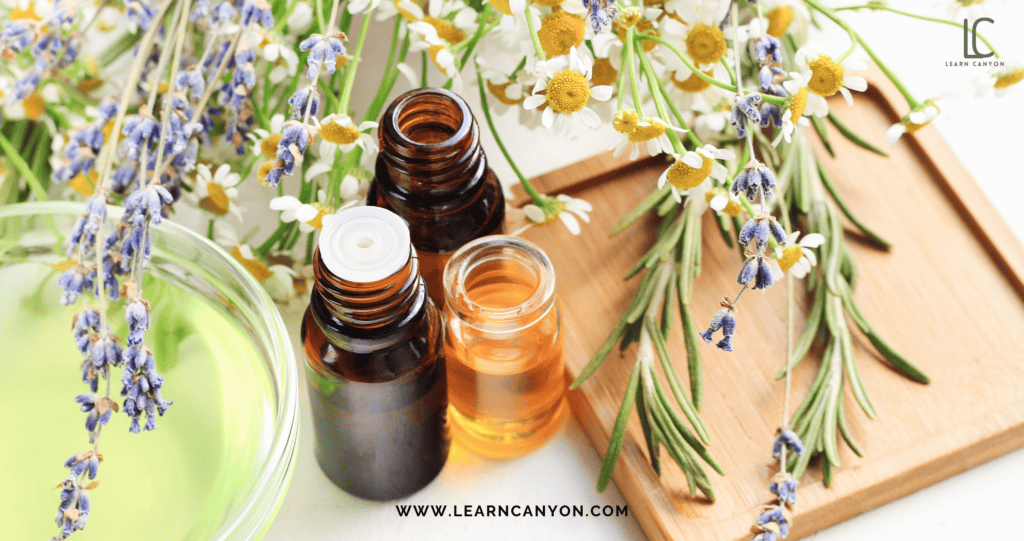
Some natural ingredients which are frequently added in skin care cosmetics are:
- Neem: Dry or wet extract has antifungal and antibacterial properties and is used to treat pimples, dandruff, and other skin disorders.
- Aloe vera is a succulent plant that is well-known for its calming and healing properties. It can be used to treat skin conditions such as sunburn, eczema, and acne.
- Argan oil: Argan oil is a high-quality oil derived from the argan nut tree. It is well-known for its hydrating and nourishing properties. Dry skin, wrinkles, and eczema can all be treated with argan oil.
- Green tea extract: Green tea extract is high in antioxidants, which can help protect the skin from free radical damage. It can also help to reduce inflammation and improve skin complexion.
- Jojoba oil is a lightweight oil that is similar to the sebum produced by the skin. It is well-known for its hydrating and balancing properties. Jojoba oil can be used to treat dry, oily, and acne-prone skin.
- Shea butter is a type of solid butter derived from the shea nut tree. It is well-known for its hydrating and nourishing properties. Shea butter is useful for treating dry skin, eczema, and psoriasis.
Read the Article on How To Make A DIY Essential Oil Face Serum
Environmental benefits of natural cosmetic products includes:
The manufacturing and disposal of synthetic ingredients can be harmful to the environment. Plant-based skincare formulations often require less water to produce because these are more concentrated and require less processing.
Packaging waste is reduced because plant-based skincare formulations are frequently packaged in sustainable materials such as recycled glass or recyclable paper, reducing the amount of packaging waste that ends up in landfills.
Before formulating plant-based skincare formulations, formulator has to tackle variety of stability issues,
Microbial growth:
Plant-based ingredients can serve as a breeding ground for bacteria and other microbes because they are frequently high in nutrients. This can lead to the product spoiling and becoming unsafe to use.Unsaturated fatty acids, which are easily oxidised, are commonly found in plant-based ingredients. Oxidation can change the colour, odour, and texture of a product. It can also result in the formation of harmful free radicals, which can damage the skin.Hydrolysis is the breakdown of a molecule by water. Plant-based ingredients are susceptible to hydrolysis, which can result in pH, viscosity, and other product properties changing.
Separation:
Emulsions, which are oil-and-water mixtures, are commonly used in plant-based skincare formulations. Emulsions have the potential to be unstable and separate over time. As a result, the product may have a grainy texture or appear oily or watery.
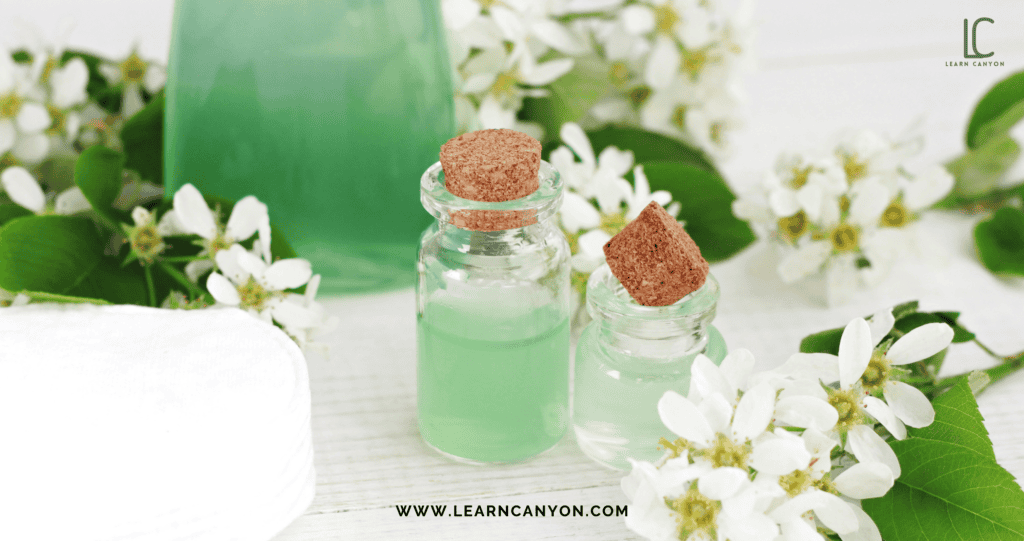
How to improve stability of plant-based skincare formulation
Formulators can improve the stability of plant-based skincare formulations by doing the following:
Using appropriate ingredients: Preservatives aid in the prevention of microbial growth in the product. Antioxidants aid in the protection of the product against oxidation thus stabilizing cosmetic products.
Changing the pH: The pH of a product can have an impact on its stability. To improve product stability, formulators can adjust the pH of the product.
Using thickeners: Thickeners can aid in the stabilization of emulsions and the prevention of phase separation.
Plant-based skincare formulations will not have a shorter shelf life than conventional skincare products if properly formulated.
Different Sources : Plant-based ingredients can be obtained from a variety of sources; however, it is critical to obtain ingredients from reputable suppliers who can provide documentation of the quality and purity of their ingredients.
Some of the difficulties in obtaining plant-based ingredients are as follows:
- Availability: The availability of plant-based ingredients varies according to the season and region.
- Quality: Before using plant-based ingredients in skincare products, it is critical to carefully evaluate their quality.
- Sustainability entails selecting ingredients that are grown and processed in a way that has the least environmental impact. The consistency of plant-based ingredients varies from batch to batch. This can make it difficult to produce consistent skincare products.
Changes occur in Herbal ingredient
Climate, soil, and water can all have an impact on the composition of plant-based ingredients. The season in which plants are harvested can also influence their composition. The methods used to extract and preserve plant-based ingredients can also have an impact on their consistency.
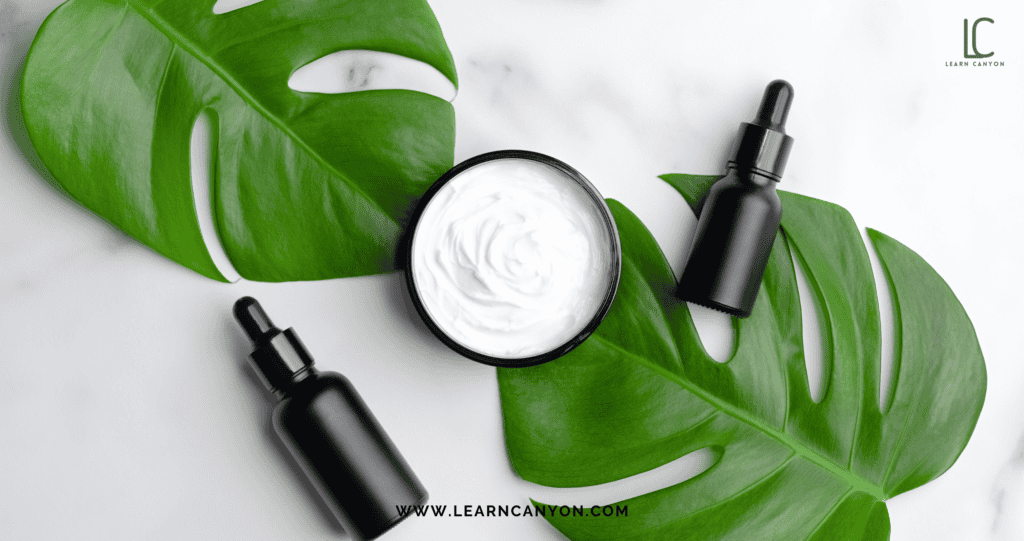
Steps required to take by Formulators:
By doing the following, formulators can reduce changes in physical properties of ingredients and maintain consistency in plant-based skincare formulations.
Formulators can work with reputable suppliers who can provide documentation of their ingredients’ quality and purity. Before using ingredients in skincare products, formulators can test them to ensure that they meet their quality standards. Formulators can use standardised extracts to ensure that the active ingredients in their products remain consistent from batch to batch.Formulators may need to make minor adjustments from batch to batch to account for variations in ingredient consistency.
Regulation of plant-based skincare formulation
Plant-based skincare formulations are subject to the same regulations as other cosmetic products in some countries. Regulation of plant-based skincare formulations is important for following reasons,
Safety: Unregulated plant-based skincare formulations may contain ingredients that are unsafe for use on the skin. These ingredients may cause skin irritation, allergic reactions, or other health problems.
Quality: Unregulated plant-based skincare formulations may be made with low-quality ingredients. These ingredients may not be effective at providing the desired skincare benefits.
Misrepresentation: Unregulated plant-based skincare formulations may be misrepresented in terms of their ingredients, benefits, or safety. This can mislead consumers and make it difficult for them to choose safe and effective products.
Using Natural Preservatives in plant-based skincare formulation
By Following the strategies outlined below, formulators can overcome the challenges of using preservatives in plant-based skincare formulations and create safe and effective products.
Natural preservatives
Natural preservatives can be used, such as rosemary extract, vitamin E, and grapefruit seed extract. These preservatives are not only effective at preventing microbe growth, but they are also gentle on the skin.Use a combination of preservatives: Combining preservatives can be more effective than using a single preservative. This is due to the fact that different preservatives have different modes of action. For example, one preservative may be effective at preventing bacterial growth while another may be effective at preventing fungi growth.
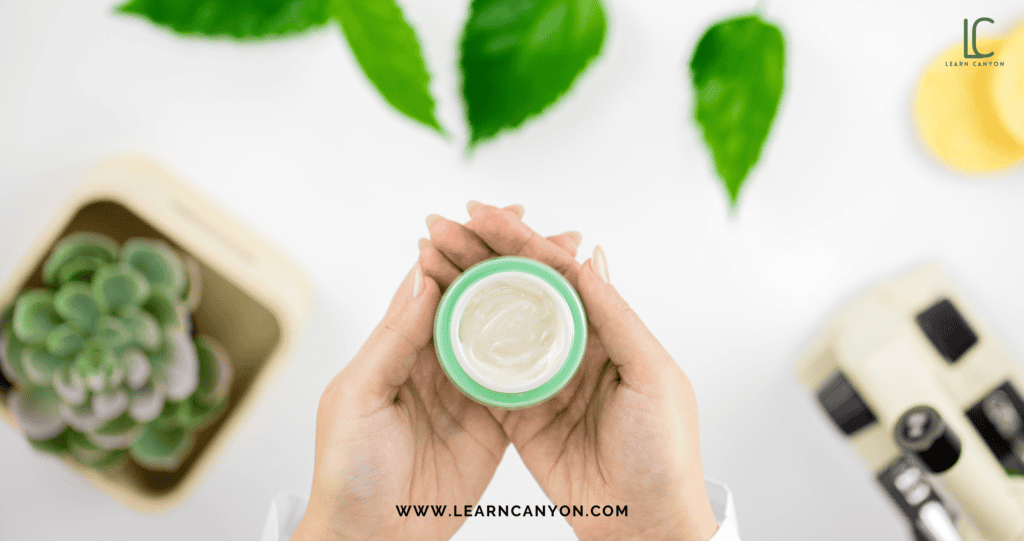
Use preservatives in low concentrations:
It is critical to use preservatives in low concentrations. This is due to the fact that high concentrations of preservatives can irritate the skin.Some preservatives can react with other ingredients in the formulation, resulting in instability or other issues. It is critical to select preservatives that work well with the other ingredients in the formulation.Choose preservatives that are broad-spectrum: Broad-spectrum preservatives are effective against a wide range of microbes.The pH of the formulation can affect the stability of preservatives. It is important to choose preservatives that are stable at the pH of the formulation.
Test the formulation:
It is important to test the plant-based skincare formulation to ensure that the preservatives are effective and that the formulation is stable.Use preservatives that are compatible with the packaging: The packaging material can also affect the stability of preservatives. It is important to choose preservatives that are compatible with the packaging material.




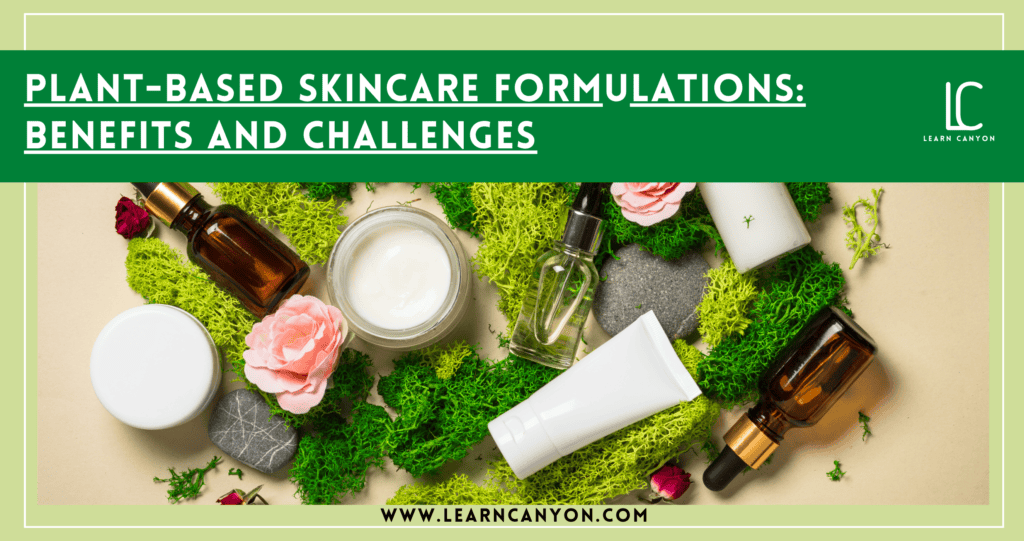


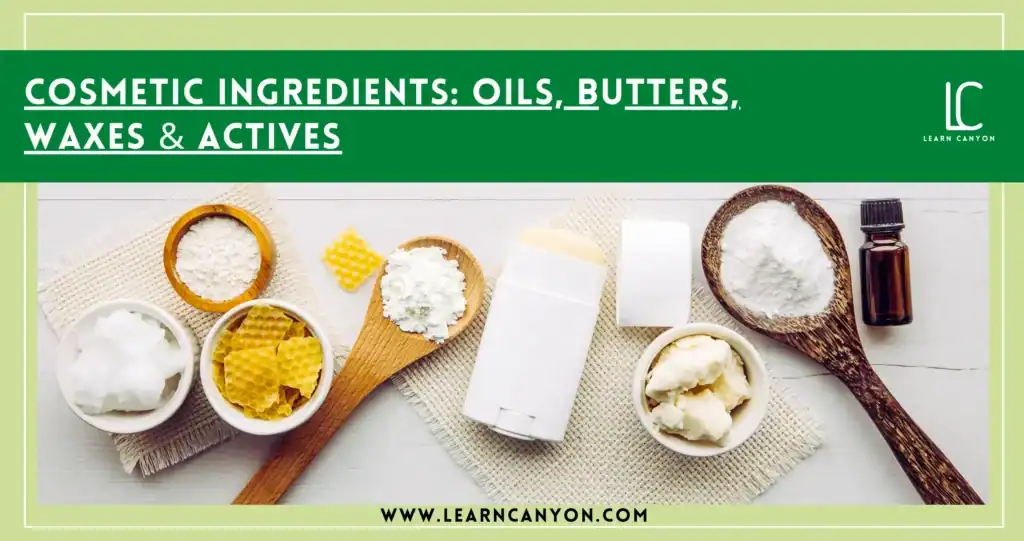
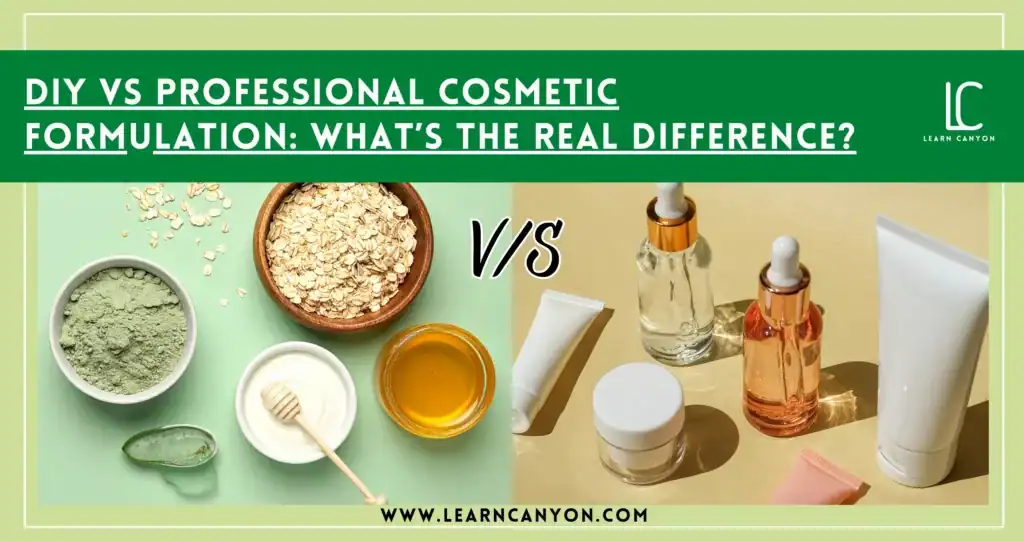



2 thoughts on “Plant-Based Skincare Formulation Ingredients: Benefits and Challenges – I”
Great blog on the benefits and challenges of plant-based skincare formulations! I love how you highlight the nutritive value and eco-friendly nature of plant-based ingredients, making them an excellent choice for sensitive skin. It’s also great to see how these ingredients contribute to skin health and appearance. At Guires Food Research Lab (FRL) play a significant role in developing cosmetics, ensuring ingredient safety and stability through rigorous testing, just like they do with food products, enhancing the quality of skincare formulations.
Great blog on the benefits and challenges of plant-based skincare formulations! I love how you highlight the nutritive value and eco-friendly nature of plant-based ingredients, making them an excellent choice for sensitive skin. It’s also great to see how these ingredients contribute to skin health and appearance. At Guires Food Research Lab (FRL) play a significant role in developing cosmetics, ensuring ingredient safety and stability through rigorous testing, just like they do with food products, enhancing the quality of skincare formulations.